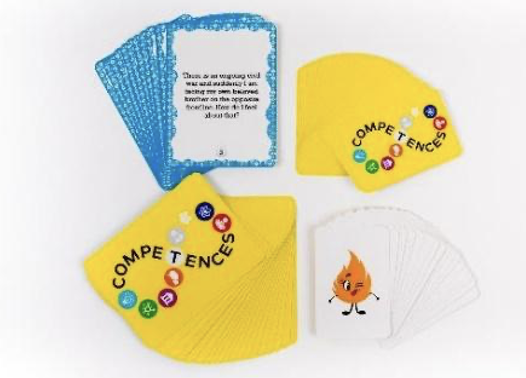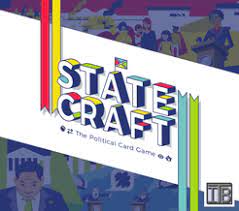| Duration: 30+ min Number of players: 2+ player/s Materials/ Tools needed: Card set “Social Emotions” Publisher: Baltic Regional fund/ 8KEYCOM project Language: EN, LV, EE, ES, HR Links: https://drive.google.com/drive/u/5/folders/16aRqXwbILv2AiqB38iruDr9y9-b–bZj |
Short description
“Social Emotions” – is a card set consisting of the 42 emotion cards and 30 situation cards. Developed situation cards are based on the Universal Declaration of Human Rights. While playing this game the player can go through different situations and by doing this test his/her skill to communicate constructively in different situations, to be tolerant, express and understand different opinions, be convincing during negotiations and protect one’s point of view.
Educational value/ Learning Objectives
- Help to develop social and civic competences
- Develop expression and communication skills
- Develop creation of links and finding of common features
- Help to handle the stress and frustration and express these emotions constructively
- Develop willingness to compromise and overcome prejudices
- Develop communication skills in the public sphere, and solidarity and interest in the local community of the problem solving
- Develop potential for self-realization and ability to function as a conscious and responsible citizen who is able to support development of a democratic society
- Develop awareness and capacity to follow socially accepted norms and values, including various media rules
- Develop tolerance and the ability to understand differences between people Help players to respect social diversity, including religious and racial diversity
Recommendations for use
- The facilitator takes one situation card and reads it out loud. The rest of the players pick one emotion card. All players have to describe/act out what they could feel in the given situation based on their emotion cards. The facilitator decides who is the first one. The round continues clockwise.
- Important role has a debriefing process and you can make it after every round and make final debriefing at the end of the game.
- During the debriefing some toys (like a speech ball) can be used as an auxiliary material.
- The game can be played without emotional cards.
- Be creative! Make new rules of the game which are most appropriate for your needs! Good luck!
- Game “Social Emotions” was developed during Erasmus+ strategic partnership project “Enterprising and Surprising through 8 Key Competences”.
Tips and Tricks for Facilitators
How to adapt game for different groups, topics, occasions/needs
Developed situation cards were based on Human Rights. If you would like to know more about Human Rights, then please look on the internet for the Universal Declaration of Human Rights.
Be creative and invent new games and rules with provided materials!
Feedback questions
- (Experience)
- What did you observe during the game (objective facts)?
- What happened? Did you like the game? What was difficult in this game
- Did you have good group work? What did you notice? Which were more difficult moments, what did you enjoy? What were they? ….. ?
- (Reflection)
- How did you feel, when you had to play different roles? Why? …..?
- (Conceptualise)
- What can we learn from it? What do you think, how important it is for people to understand each other? What did you learn yourself from this game? What did you learn together? …..?
- (Applying)
- How can we transfer it to our lives? Which similar cases have you noticed in real life? Have you thought of similar situations before? Which skills are you taking with you from this game to everyday life? (for example, the skill to be the group’s leader, notice etc.)
Further discussion topics
Discrimitation




